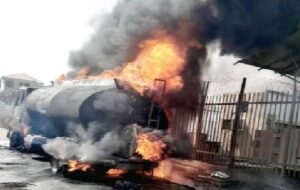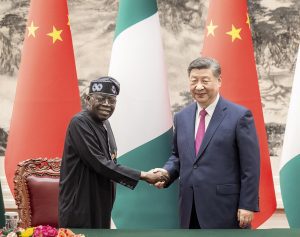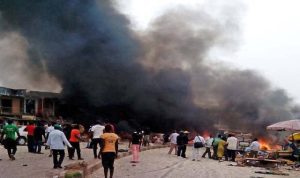Polling stations open late late across parts of Nigeria in crucial election

Abuja, The Gulf Observer: Polling stations opened late across parts of Nigeria on Saturday as Africa’s most populous country held presidential and parliamentary elections amid a nationwide bank note shortage that left many without transport to their voting centers.
The elections come amid fears of violence, from Islamic militants in the north to separatists in the south, though officials did not postpone the vote as the last two presidential elections were.
In northeastern Borno state, policemen deployed to protect voting units were seen trekking long distances to get to their posts.
The delays raised concerns about whether voters would be disenfranchised. There were no electoral officials in more than 70% of voting units an hour before the vote was due to start, Samson Itodo, head of YIAGA Africa, Nigeria’s largest election observer group, told Press.
Logistic and security problems, including the snatching of some voting machines in parts of Delta and Katsina states and the inability to deploy workers to violent hotspots in the southeast contributed to delays, said Mahmood Yakubu, head of Nigeria’s Independent National Electoral Commission. Still, everyone would have the opportunity to vote, “no matter how long it takes,” he said.
Incumbent President Muhammadu Buhari is stepping down after two four-year terms. Out of the field of 18 presidential candidates, three front-runners have emerged in recent weeks to replace Buhari: the ruling party candidate, the main opposition party candidate and a third party challenger who has drawn strong support from younger voters grappling with a 33% unemployment rate.
But whether those supporters would show up in force at the polling stations remained unclear as Nigerians have waited hours in line at banks across the country this past week in search of money.
Kingsley Emmanuel, 34, a civil engineer, said the cash scarcity was a real obstacle for many would-be voters.
“They don’t have the cash to pay for a commercial vehicle and most of them don’t accept (money) transfer,” he said from a polling station in the city of Yola in Yola city in Adamawa state. “So it is very difficult for them to access their polling unit.”
The vote is being carefully watched as Nigeria is Africa’s largest economy and one of the continent’s top oil producers. By 2050, the U.N. estimates that Nigeria will tie with the United States as the third most populous nation in the world after India and China.
It is also home to one of the largest youth populations in the world: About 64 million of its 210 million people are between the ages of 18 and 35, with a median age of only 18.


